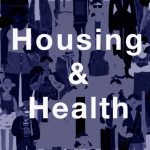 A forty year old unhoused person faces the same mortality risk as someone who is nearly sixty years old. They have about a 350% greater risk of all-cause mortality than someone their own age. Housing status creates the greatest gap in mortality rates, more than differences in race, income level, or any other demographic (SOURCE). As California’s population of people experiencing homelessness (PEH) hits new highs (187,084 people in total in 2024), the fact becomes clear: housing is a health issue.
A forty year old unhoused person faces the same mortality risk as someone who is nearly sixty years old. They have about a 350% greater risk of all-cause mortality than someone their own age. Housing status creates the greatest gap in mortality rates, more than differences in race, income level, or any other demographic (SOURCE). As California’s population of people experiencing homelessness (PEH) hits new highs (187,084 people in total in 2024), the fact becomes clear: housing is a health issue.
At her October 10th presentation to the DEI team, Dr. Sharon Goldfarb, DNP, presented on how healthcare intersects with one of the Bay Area’s most discussed policy issues. Housing and healthcare are intrinsically linked, especially in California.
Ultimately, a person’s housing status is tied directly to all of the most basic factors that control one’s health. Food insecurity and uncertain access to care are both increased when someone cannot find permanent shelter. Control for underlying conditions, as well as for mental disorders – which have a lifetime prevalence rate of 77% amongst unhoused people – is nearly impossible to maintain.
Physical risk is increased, too. According to Goldfarb, unhoused populations have “high rates of injuries, falls, burns, assaults… homicide suicide and elevated hazard for injuries and death… If you’re not living in a safe place or if you’re not living with people who are safe,” she said, “You are just more at risk.”
The Bay Area’s population of unhoused people hit a record of 38,891 people last year – more people than the populations of Emeryville and Albany combined. For each one of these people, health care often seems impossibly out of reach. The League’s position on housing and healthcare is clear: access to both should be a right for all US residents.
Yet to Goldfarb, the question of how these issues can be addressed jointly looms large, “Where should the League of Women Voters focus – production, protection or subsidies?” she asked. “How can we better tell the health story in local housing debates?”. These questions remain for all of us, for as long as the housing and healthcare crises continue in tandem.
Interested in learning more and sharing your voice?
Attend the DEI Team meetings! Every 2nd and 4th Thursday from 7:30 to 8:00. The DEI team discusses health policy issues, at both a local and national level. Check the League Calendar for the next meeting.
All League News

